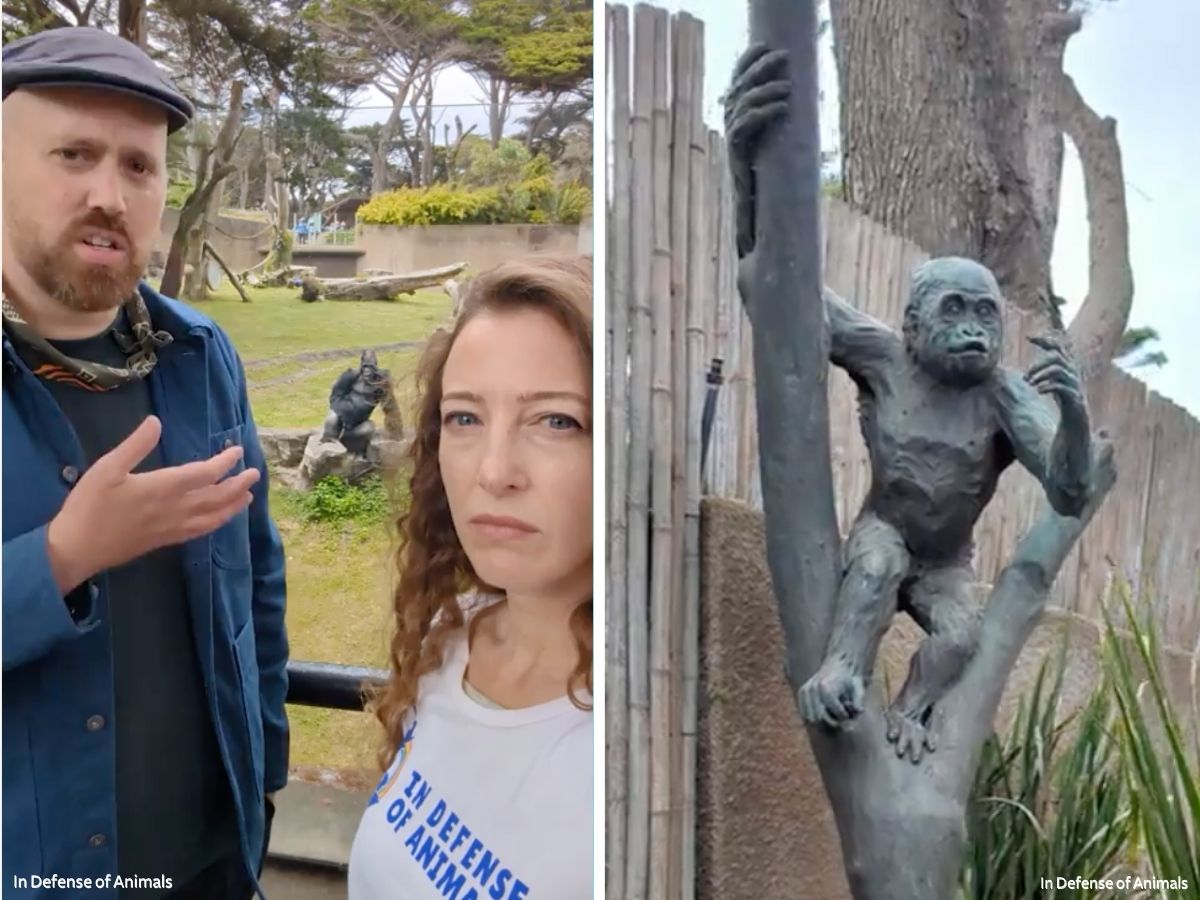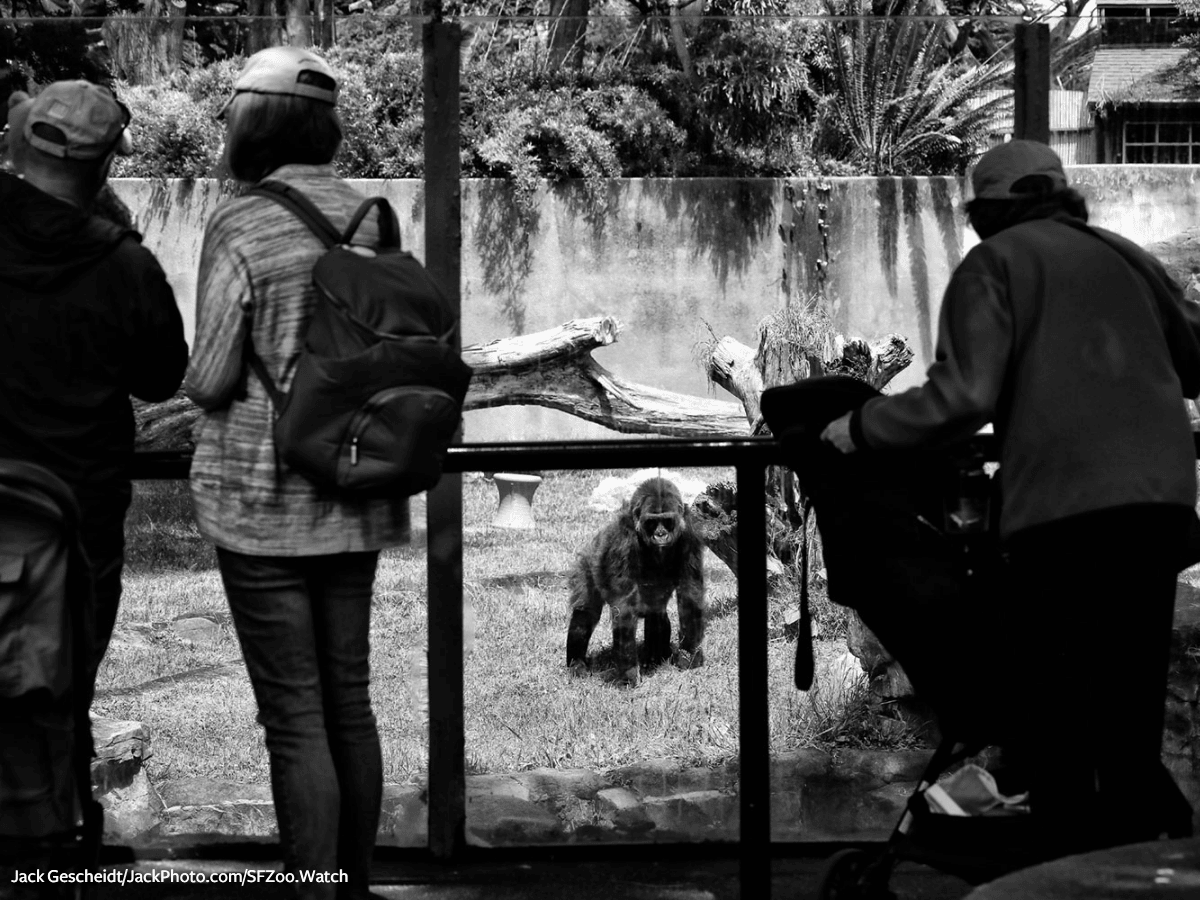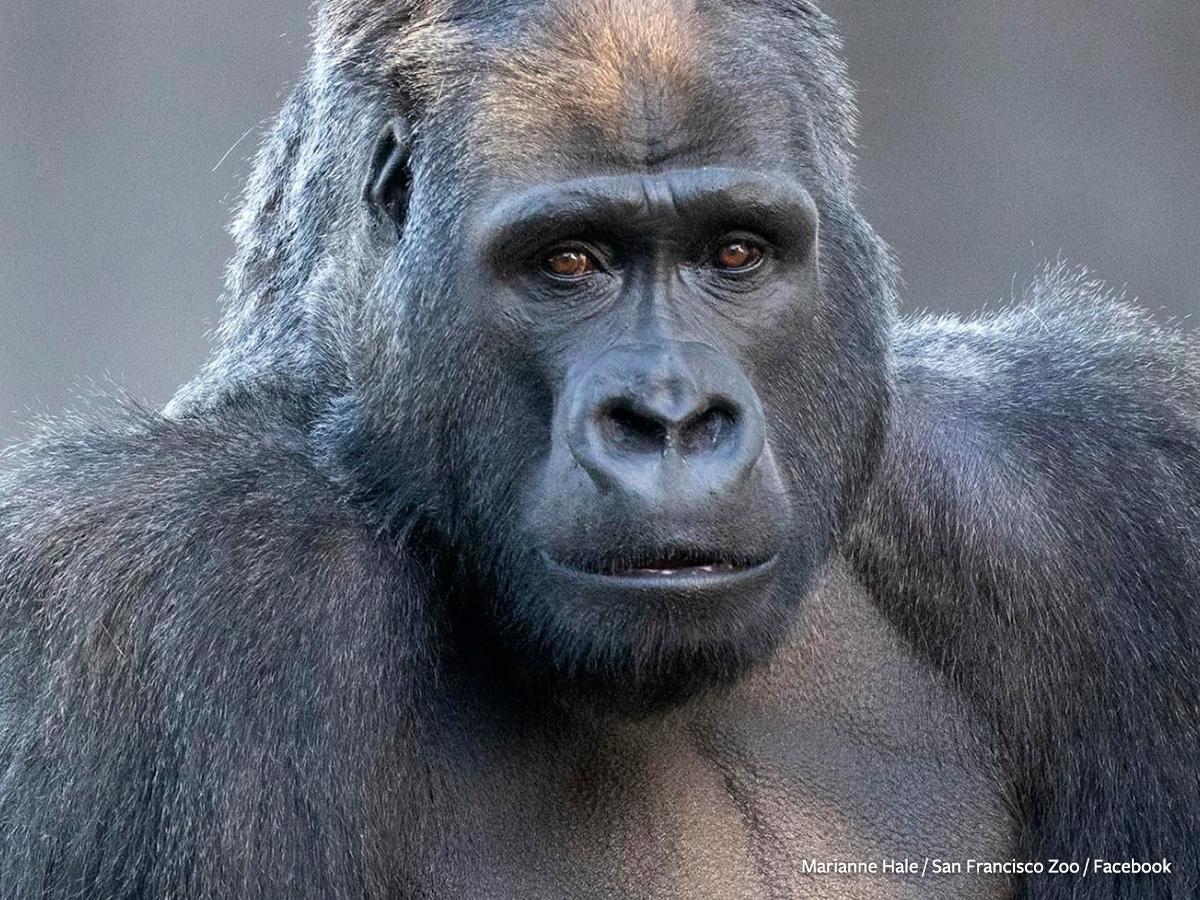MEDIA RELEASE: Oscar the Gorilla’s Death Was Preventable. San Francisco Zoo Faces Renewed Scrutiny Amid “Silverback Soirée” Fundraiser
SAN FRANCISCO (October 16, 2025) — Newly revealed details confirm that Oscar Jonesy — the San Francisco Zoo’s longtime resident silverback gorilla — had heart disease and was anesthetized against zoo-industry recommendations before his death in February.
At the August Joint Zoo Committee meeting, Ingrid Russell, the Zoo’s Vice President of Compliance and Animal Welfare, disclosed for the first time, and as noted in a recent zoo press release, that Oscar had been diagnosed with heart disease. That revelation came six months too late.
Oscar, who had lived at the San Francisco Zoo since 1981, died after being anesthetized for what officials described as a “routine medical procedure.” He never woke up.
According to the Great Ape Heart Project (GAHP) — the global authority on ape cardiac care — gorillas with known or suspected heart disease should never be placed under general anesthesia unless absolutely life-saving. The risks are too high, and modern zoos are urged to use non-invasive monitoring and awake medical training instead.
The San Francisco Zoo did not follow that guidance.
“Oscar’s death wasn’t a freak accident,” said Justin Barker, founder of SFZoo.Watch, a community watchdog group focused on transparency and animal welfare. “It was a preventable outcome that raises serious questions about veterinary oversight, leadership accountability, and whether the zoo is capable of protecting the animals in its care.”
Oscar’s death adds to a troubling history of preventable tragedies at the San Francisco Zoo.

In 2014, Oscar’s daughter Kabibe was crushed to death by a hydraulic door.
In 2020, another gorilla, Zura, died under questionable circumstances.
Former employees have also described unsafe working conditions, outdated infrastructure, and inadequate training that compromise both animal welfare and staff safety.
Despite the zoo’s announcement of “new leadership” earlier this year, its upcoming ZooFest 2025 fundraiser — branded the Silverback Soirée — suggests little has changed.
According to the zoo’s press release, the October gala will celebrate the arrival of 27-year-old silverback Cecil from the Louisville Zoo. Guests will enjoy an “elegant evening” featuring signature cocktails — the Gorilla’s Kiss and Cecil Spritz — and a VIP reception at the Jones Family Gorilla Preserve, where Oscar lived and died.
“While the zoo hosts cocktail parties and press events, its failures remain unaddressed,” Barker added. “Cecil’s transfer is not progress — it’s another example of animals being moved, managed, and marketed as assets.”
For more than two decades, Cecil lived with familiar companions in Louisville. Now he has been uprooted, separated from his family, and flown across the country to a facility that lost its last silverback under preventable circumstances — all to produce offspring.

“This isn’t conservation,” Barker said. “It’s captivity management dressed up as mission work.”
Behind the marketing veneer, critics argue, lies a culture where control masquerades as care and transparency is treated as risk. The instinct, even after a tragedy, is not to pause but to pivot — to the next press release, the next headline, the next “new chapter.”
If the San Francisco Zoo truly wants to honor Oscar Jonesy, advocates say it should:
- Release his full necropsy and anesthesia records
- Adopt non-invasive health monitoring for all great apes
- Allow independent oversight of veterinary decisions
- Acknowledge — and change — the culture that enables preventable losses
Instead, the zoo has chosen cocktails and celebration.
“Oscar’s death should mark the end of an era,” Barker said. “It’s time for a new model — one that stops treating sentient beings as inventory and starts building a future rooted in care, transparency, and respect.”
“Raising one’s glass to toast lives being kept in cages is the height of insensitivity, and no amount of champagne at a gala can make it glamorous,” said Michael Angelo Torres, Bay Area Campaigns Coordinator for In Defense of Animals. “Cecil lived with his gorilla family for over 21 years before being abruptly moved to the San Francisco Zoo, with little apparent regard for how this disruption could affect him. Gorillas are intelligent, self-aware beings who form complex social bonds and suffer greatly in captivity, no matter how well their enclosures are designed. We urge the San Francisco Zoo and its supporters to redirect their compassion and resources toward genuine conservation and the rehabilitation of native wildlife who truly need our help here at home.”
Over 27,000 members of the public have contacted city officials to cancel plans to house pandas at San Francisco Zoo: https://www.idausa.org/sfpanda and nearly 12,000 have called on Mayor Lurie to turn the zoo into a native animal rescue and ecopark: https://www.idausa.org/rethinksfzoo
### NOTES ###
CONTACTS:
In Defense of Animals, Fleur Dawes, media@idausa.org 415-212-8653
SF Zoo Watch, Justin Barker, justinmbarker@gmail.com 916-838-3330
IMAGES & VIDEO of animals at San Francisco Zoo and protests are available on request.
ORGANIZATIONS:
In Defense of Animals is an international animal rescue and protection organization with over 250,000 supporters and a history of defending animals, the environment, and their guardians through education and campaigns, as well as hands-on rescue facilities in India, South Korea, rural Mississippi, and California since 1983. www.idausa.org/entertainment
SF Zoo Watch is committed to exposing negligence and mismanagement at the San Francisco Zoo. We fight for the safety and ethical treatment of animals and workers, pushing for transparency and accountability. Join us in demanding a safer, more humane San Francisco Zoo. https://sfzoo.watch
### ENDS ###





